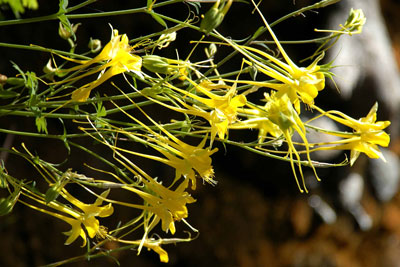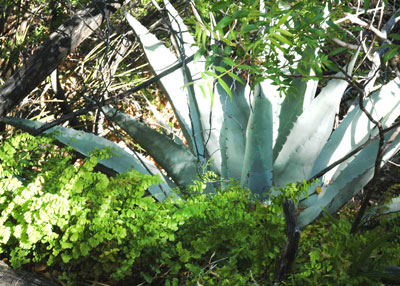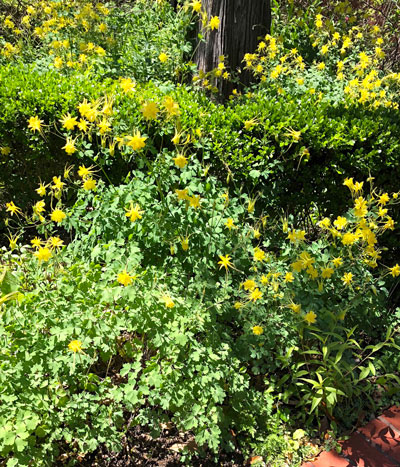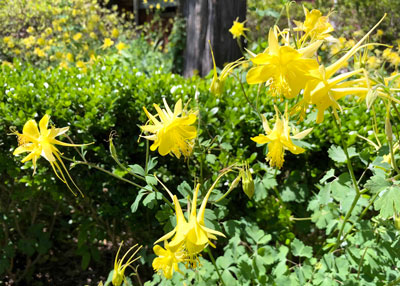‘Texas Gold’ a true favorite
If you think columbines won’t grow in Texas, you haven’t tried this one. This is a selection of Hinckley’s columbine (Aquilegia chrysantha hinckleyana), a native to a small number of waterfall canyons in arid West Texas.
My friend the late Benny Simpson and I worked together at the Texas A&M Center at Dallas in the 1970s. Benny spent a lot of his time climbing the hills and mountains of West Texas looking for unusual native plants for gardeners to try.

Benny described a particular place where this columbine grew wild, and he told me how to find it. The authorities had taken the signs down to protect the fragile nature of the habitat, but I knew enough to find our way. We knew not to bother nature.

My wife and I hiked several miles of rough terrain through yuccas, ocotillos, agaves and mostly rocks. It was hot, and it was difficult. Finally, we neared the small, brackish pond where the small stream of a waterfall maintained the level of the pool. We found cattails and maidenhair ferns and, yes, Hinckley’s columbines growing at pond’s edge. All surrounded by the desert of Southwest Texas.

And the story got better…
I’m not going to press him for specific details, but about the same time that I was discovering the pond and waterfall Benny had described, another of my friends, premier horticulturist Greg Grant (now Smith County Extension Horticulturist) was working at selecting an improved strain of Hinckley’s columbine for introduction into the Texas nursery trade. His cohort, retired Extension specialist Dr. Jerry Parsons from San Antonio, helped test and name ‘Texas Gold’ columbine and put it into the nursery trade a little more than 25 years ago.
And the rest is now history. This plant has long since proven its worth. It’s a fabulous performer.

The facts of the plant… ‘Texas Gold’ columbine
• Prefers shade to part shade (morning sun, afternoon shade).
• Grows to 18-24 inches tall and wide.
• Attractive blue-green foliage.
• Flowers sunshine yellow with long spurs.
• Blooms April into May.
• Perennial (short-lived: 2-3 years).
• Reseeds itself freely.
• If spider mites turn leaves brown, merely cut plants off at ground level and allow new growth to take over.
• Transplants are easy to move if you’ll do it in early spring when they’re still small.
